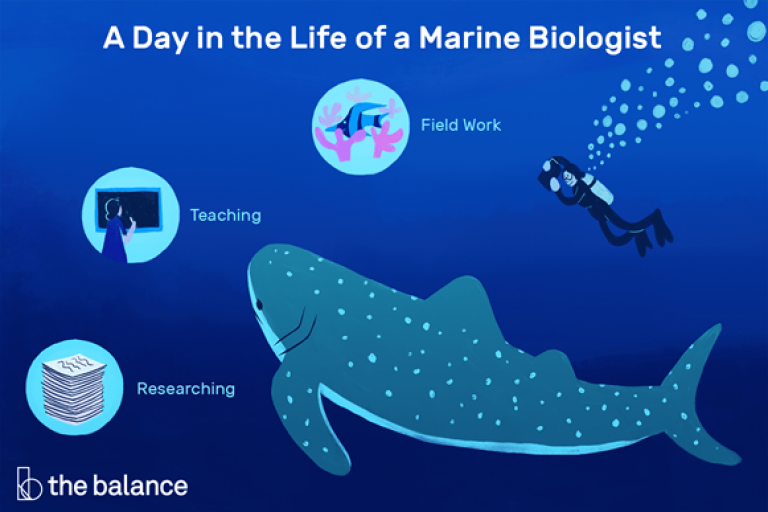What career path/degrees/A level would I need to take to become a vet/marine biologist?
Great question!

28 April 2021
I am afraid I am not qualified to answer the part of this question about becoming a vet, but the information on this website is useful and has been put together by experts, so I hope you find it a useful starting point: https://www.pdsa.org.uk/careers/how-to-become-a-vet.
For marine biology, I would say that this guide from the National Aquarium is a good one, summarising what sorts of A levels and other qualifications and experiences can be helpful. I also like how honest it is, as I have to say I was a lot more seasick than I expected to be on my first trip working on a research vessel and I also wasn’t well-prepared for handling slimy worms in the lab! I feel so lucky to have studied marine ecology though, so definitely recommend it as a fascinating subject to study and work on, especially as you meet and work with such friendly people. The work varies, from computer-based mapping and statistics to ship and lab-based practical work (as summarised in the image above), which means that you tend to meet people who aren’t afraid to get their hands dirty and who really enjoy being out in nature. As it is quite a specialist subject, everyone seems to be incredibly passionate about it, which also adds to the lovely sense of community you feel when working in marine science.
I hope you don’t mind me sharing my personal career pathway, in case it is helpful as a reference, as I did not have a ‘traditional’ route into marine biology, and I know many others who now work as marine biologists but didn’t have the ‘ideal’ starting point described on the National Aquarium guide. My main piece of advice is to pursue the subject that you love and find interesting, and not to worry if you cannot take specific A levels for any reason. It is great if you do know which career you’d like to pursue now and can plan accordingly (e.g. Biology looks like a good choice for being a vet or a marine biologist), but try not to worry if plans don’t work out right away. The doors to different careers are rarely completely closed. Marine biology is something you can move into from various entry points if you are willing to commit to some extra studying, volunteering, or work experience along the way.
The routes into marine biology can vary a lot. For example, I have a PhD in deep-sea ecology but started off studying English Literature, French, and Geography at A level, later pursuing Geography for an undergraduate degree. For me, the route into marine biology was not a straightforward one. I chose to study Geography at University and never really knew that marine biology was an option until I visited the University of Southampton on an ‘Open Day’ and heard about the National Oceanography Centre and the courses offered at the School of Ocean and Earth Science based there. I didn’t have the right A levels to pursue marine biology straight away. Instead, after a year of working hard to prove myself at Southampton, I asked a course leader if I could swap some of my modules to oceanography ones, and they agreed, as long as I took an additional Maths class. I started in physical oceanography (learning the physics behind how the oceans work), before then applying to do a postgraduate (Masters) degree in Oceanography, which enabled me to take marine biology and ecology courses for the first time. I was also very fortunate on that course to have kind and open mentors. Dr Jon Copley, for example, let me take on a marine ecology research project, despite my lack of biology background, and I was hooked (and why I later applied to study for a PhD in deep-sea ecology).
I wish you all the best with your career and hope that I have helped to answer your question, but please do feel free to get in touch again if you have any further questions!
For now, I can recommend checking out the websites of some of my early marine biology mentors, as they share some great information and videos showcasing life as deep-sea ecologists and what working as a marine biologist can involve:
http://www.joncopley.com/
https://nautiluslive.org/people/leigh-marsh
https://divaamon.com/
 Close
Close


